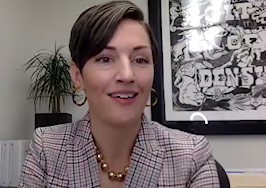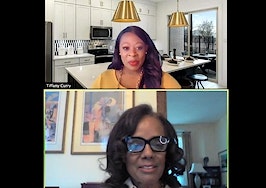Direct-to-consumer video began with the arrival of grainy, black-and-white television in mid-century homes and, in a single lifespan, has evolved into watching mini movies on pocket phones anywhere in the world! It’s been estimated that we now upload more video content in just 30 days than the major U.S. television networks created over 30 years.
Video marketing is riding the crest of this wave and, for real estate professionals, it isn’t a question of whether you should get on board but how to dive in and use it effectively.
The following best-practices guide is something I implemented to help agents create videos during my years of working with digital marketing for the real estate space, including time as a multimedia content manager for ListHub and realtor.com.
My focus is on “content marketing videos” as opposed to “listing videos.” Content marketing is designed to inform (and build) your audience, while building your brand as an experienced, trustworthy agent and local market expert. These have a longer shelf life and can cover many different subjects.
My 4-step format
All communication boils down to what you say and how you say it. For our purposes, let’s call what you say the “content” and how you say it the “structure.” Let’s start with structure. A simple formula to ensure your videos are effective can be summarized as hook, book, look and took.
1. The hook engages
Attention spans are short, and your video needs to grab a viewer within 10 seconds. Or, more precisely, grab interested viewers, and let the rest go! Do this by clearly stating your subject. If the content addresses a concern or question, summarize it in a sentence. Using a powerful story or an eye-popping statistic will also hook viewers.
2. The book educates
This is the meat of the video, where you offer answers to the questions and solutions to the problems. For instance, if it’s about safety protocols, explain what good real estate agents are doing (of course, while using yourself as an example).
3. The look reviews
Take a brief look back at what you’ve presented to reinforce the message. Do it with a question such as, “How does this impact you?” This gets the viewer into a first communication with you that can continue naturally in follow-up.
4. The ‘took’ is the takeaway
So many video makers leave out a call to action. You need to suggest a clear follow-up action, such as directing viewers to email you by offering to answer submitted questions or directing them to any related videos you’ve created on your YouTube channel or real estate website.
The content in ‘content marketing’
When agents tell me they don’t know what to talk about, I say — listen to your audience. What common questions and problems are your sellers, buyers and fellow professionals concerned with? Start there. If you have to do some research, that’s even better. It just means your video will be more valuable.
Other areas that can generate content are those things you are passionate about. If it’s food, interior design, travel or sports, talk about that, but try and tie it to your market. For instance, if the subject is food, highlight unique restaurants in your community. Consider interviewing the owner or the chef — with Zoom during the pandemic and in person when you can.
Does the content need to be done professionally? Is a DIY video OK? For a content marketing video, it doesn’t have to be highly produced. The value is in delivering that information and having it come from you to build the expertise. And because you should upload new videos with some regularity — perhaps every other week — you don’t want to burn through the budget on the first one!
In 2019, Optinmonster research determined video marketers were getting 66 percent more qualified leads each year. This year — as more people are limited to shopping for property online — try increasing your brand awareness with your own content marketing videos.
Lisa Suazo is a Marketing Technology Director with WEST, a Williston Financial Company in Denver, Colorado.








